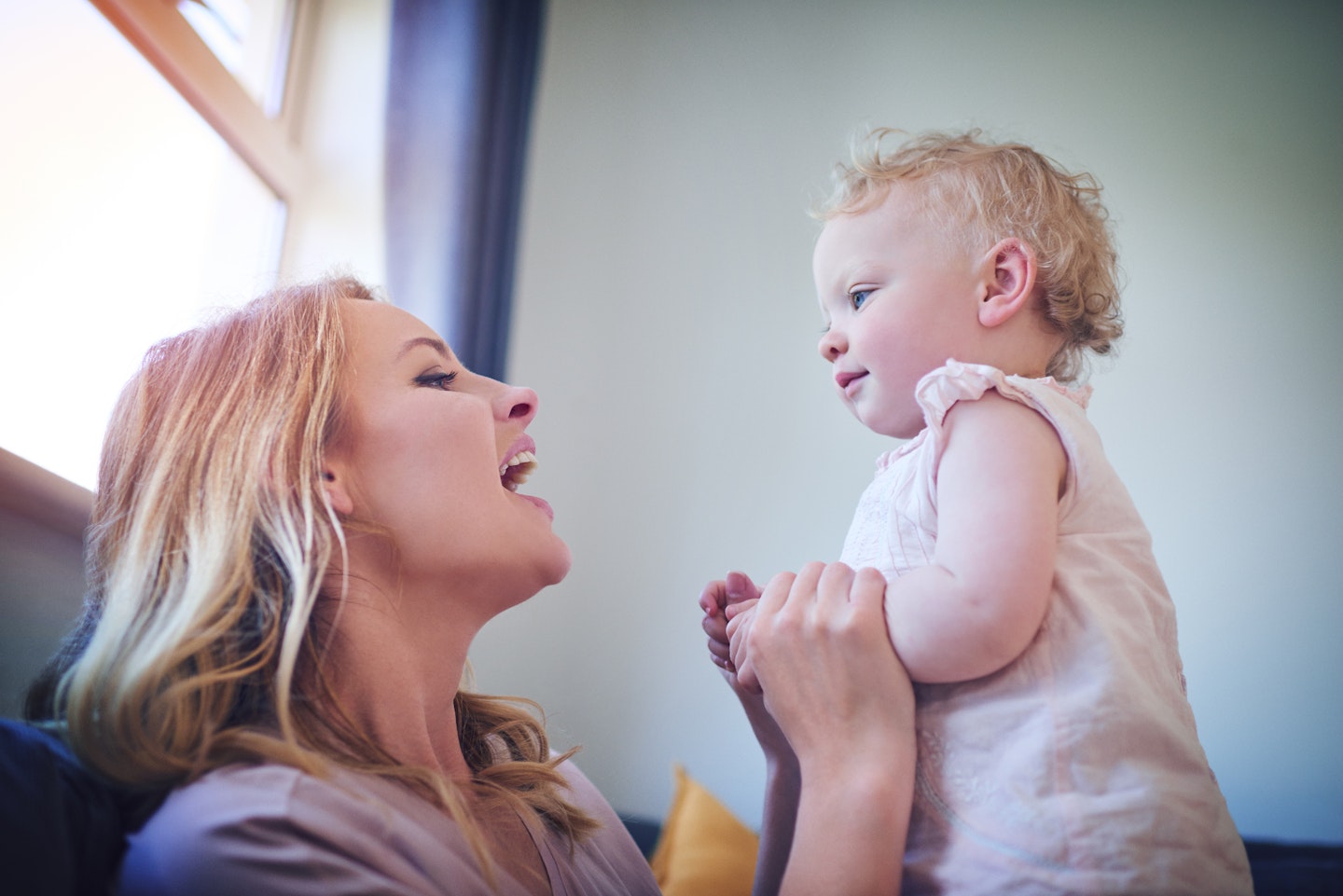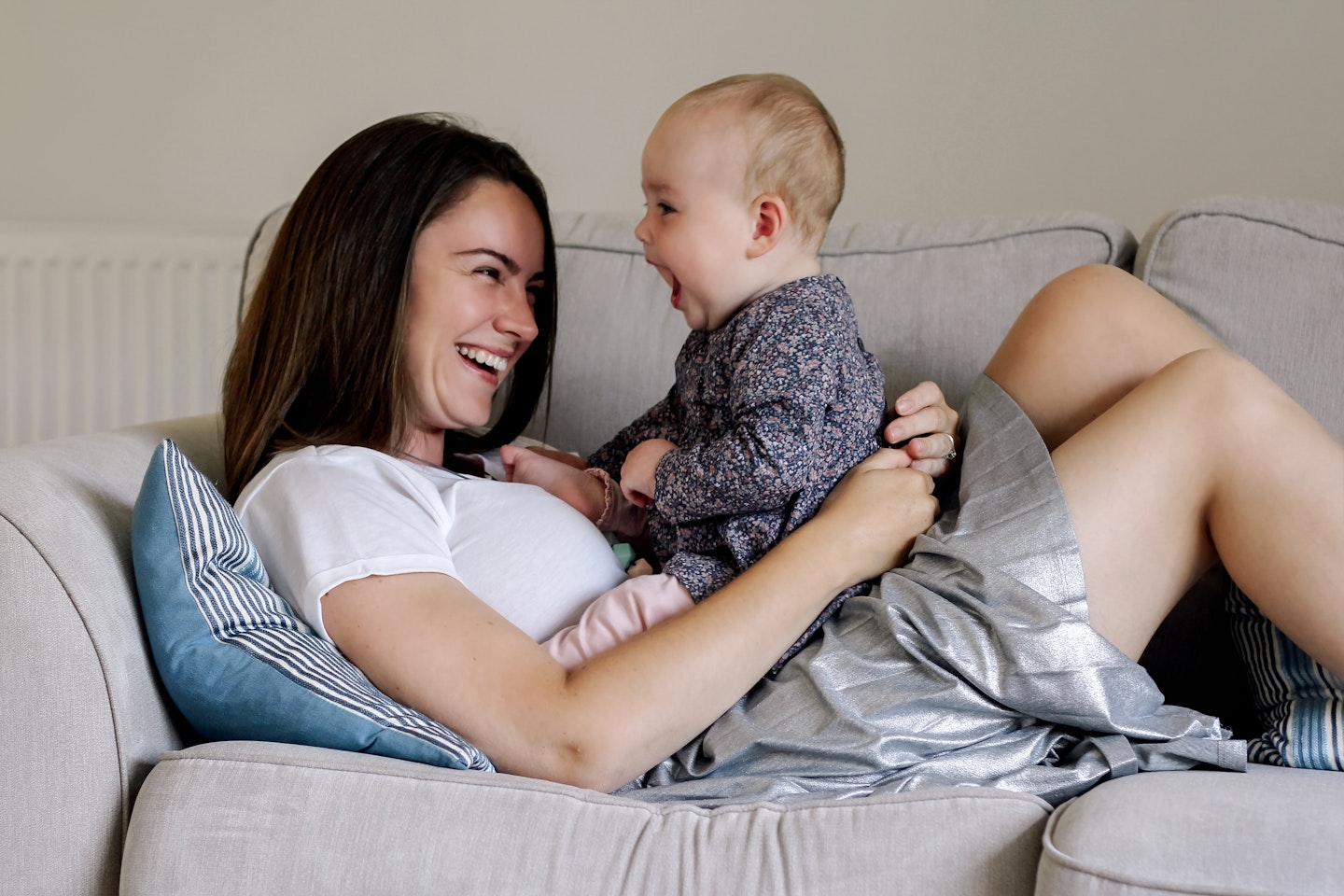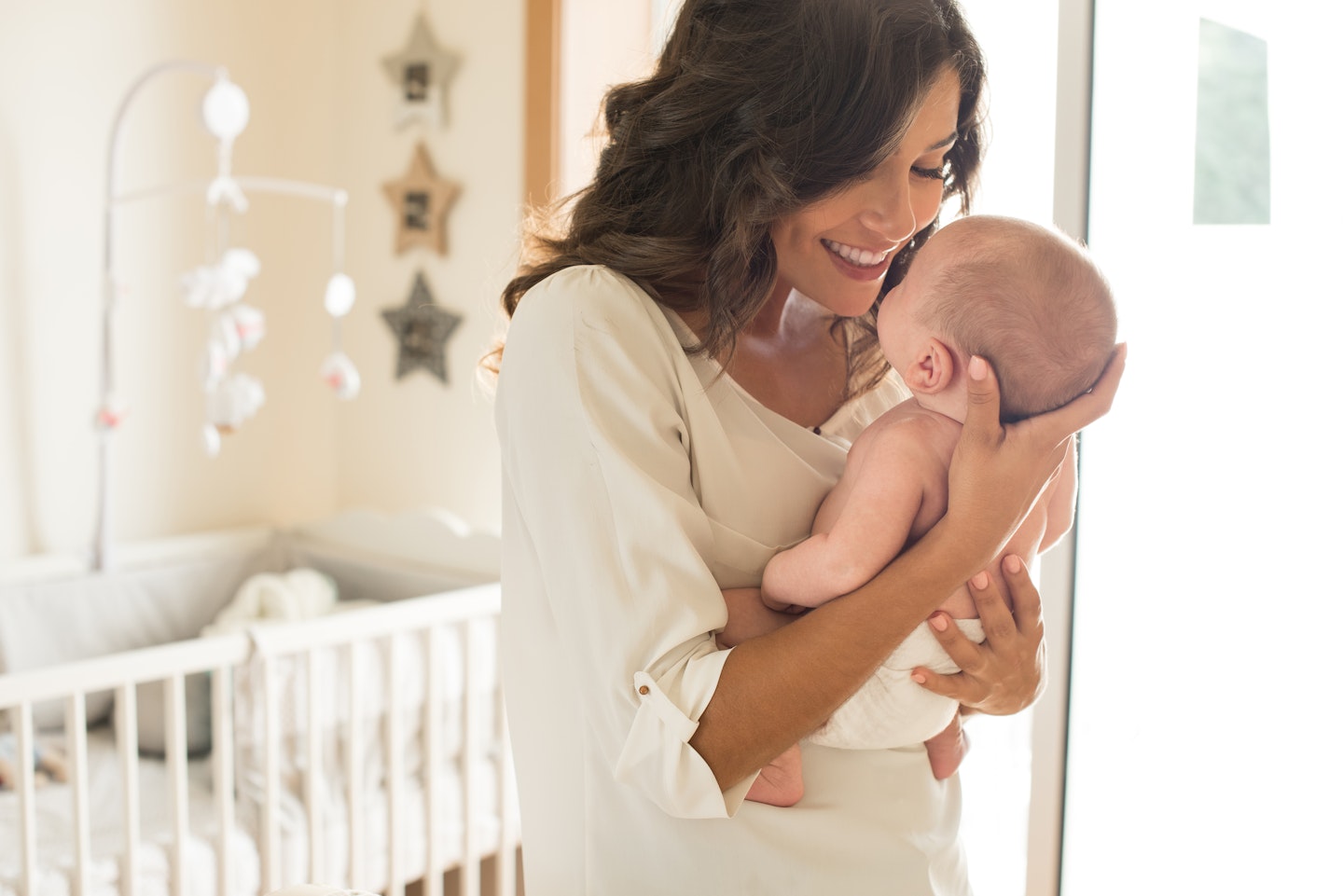Think you’re just singing a song together to entertain your tot? Think again! From improving his brain’s ability to retain information to making it easier for him to learn to talk, singing brings a host of almost miraculous effects…
9 benefits of singing with your little one:
baby singing benefits
 1 of 9
1 of 91) Handle emotions
Singing to your baby calms him when he’s feeling upset, and helps him learn to regulate his emotions from the get-go.
‘Music triggers his brain to release dopamine, the hormone which brings a feeling of bliss,’ says child development expert Sally Goddard Blythe. ‘And lullabies are especially effective at soothing your baby.
Lullabies tap into simple melodies and rhythm, and mimic the motion of the mother’s body which the baby is accustomed to from being in the womb. This rhythm makes your baby feel safe and secure.’
Song to try: Hush Little Baby is the perfect song to lower the levels of stress-hormone cortisol in your baby’s brain.
 2 of 9
2 of 92) Strengthen memory
Your baby’s memory is like a muscle: the more he uses it, the stronger it will become. Singing is an excellent way of building long-term memories, creating important neurological pathways in his brain. And the more those pathways are used, the more effective they will be.
‘Putting words and music together makes it easier for us to remember sequences of information,’ explains Sally. ‘Musical information is stored in the right side of the brain, and verbal information is stored in the left.
Both sides of the brain are always developing, but the right side of your youngster’s brain is slightly more developed than the left, up until the age of seven. This means it’s easier for young children to access information from the right side of their brain.’
So, singing words makes them much easier to remember – sing the ABC song and he’ll memorise the alphabet so much more quickly than if you simply say the letters to him.
Song to try: number-related action songs will help him learn to count: try pretending your fingers are sausages as you sing 10 Fat Sausages
 3 of 9
3 of 93) Distinguish sounds
Before your baby can even think about saying his first words, he must learn to tell the difference between sounds. ‘Singing slows down the sounds of speech, and helps youngsters discriminate specific sounds within speech,’ says Sally. ‘Your child will be able to hear all the important sounds within the words, and this not only helps him learn to talk, but will aid skills like spelling and reading when he’s older.’
Song to try: Sing a song with a simple rhythm that naturally breaks words down into syllables, such as Twinkle, Twinkle, Little Star, and listen to how the sounds are separated.
 4 of 9
4 of 94) Learn the art of conversation
Singing to your baby also teaches him about reciprocal communication – an essential building block in being able to hold a conversation when he’s older. ‘There’s a big difference between singing and putting a CD on,’ says Sally. ‘When you sing to your youngster, you wait for his response, and adjust your responses accordingly – it’s a first conversation.’
Song to try: _I Hear Thunde_r is a great song to encourage your little one to have a go at repeating what you’re singing,
 5 of 9
5 of 95) Build their brain
Exposing your child to music at an early age is great for brain plasticity – the brain’s ability to change over time and form new connections between neurons. Researchers have found that professional musicians have a larger cortex, a part of the brain which plays an important part in processing information, than non-musicians.
‘A lot of this is down to different parts of the brain working together,’ explains Sally.
Song to try: Actions songs such as The Wheels on the Bus will have a similar effect: as well as using his lips and tongue together to sing the words, and his body to join in with the actions, too.
 6 of 9
6 of 96) Create a sound library
‘Language is very musical,’ says Sally: ‘Although we think of language as vocal, it’s based on musical aspects like melody, rhythm and tone of voice. Your baby will learn the musical aspect of language long before he learns to speak any words, and singing will help him do this.’ Singing will also help your tot to develop a ‘sound library’, which he can draw on when he learns to talk. ‘And babies can learn any language under the sun if they are exposed to the sounds!’ Sally adds.
Song to try: Old Macdonald Had a Farm is full of great sounds, and gives your little one a chance to have a go at making sounds, too.
 7 of 9
7 of 97) Boost his understanding
‘Singing plays an important part in helping your child understand the meaning of words, especially if you use actions and move with the words you are singing,’ says Sally.
Song to try: Heads, Shoulders, Knees and Toes is a really effective way of helping your tot learn what his body parts are called, as he’s encouraged to touch each as he sings the word.
 8 of 9
8 of 98) Grasp rhythm
Most action songs and nursery rhymes have a clear rhythm which will help your little one understand phrasing, a vital skill when it comes to speech. To increase this, try exaggerating the rhythm of the song.
Song to try: As you sing The Grand Old Duke of York, stamp your feet on the ground as if you’re marching. And, to Hickory, Dickory, Dock, swing your arm from side to side like the pendulum of a clock, to help your tot get a feel for the beat of the song.
 9 of 9
9 of 99) Spark his imagination
Singing about things your child cannot see encourages him to use his imagination. Typically, youngsters start playing games which involve pretending from around 18 months. To encourage this aspect, chat to him about the characters in the song.
Song to try: Humpty Dumpty lives in a fairy-tale world full of things your tot won’t see in everyday life, such as eggs sitting on walls and king’s horses. So, after you’ve sung the rhyme, ask him how big he thinks the wall was, or if he thinks Humpty Dumpty has got a bandage on now...
Meet the expert: Child development expert Sally Goddard Blythe is the director of the Institute of Neuro-Physiological Psychology (INPP) and the author of The Genius of Natural Childhood
What do you like to sing to your baby? Let us know on Facebook or Twitter!
Make sure you're following Mother & Baby on Instagramfor relatable memes, inspiring stories and parenting hacks!
Join the club! Introducing our brand, spankin’ new Facebook group called #mumtribe. Simply search ‘#mumtribe’ into the search bar and meet like-minded mums, win gorgeous goodies and have some fun!
